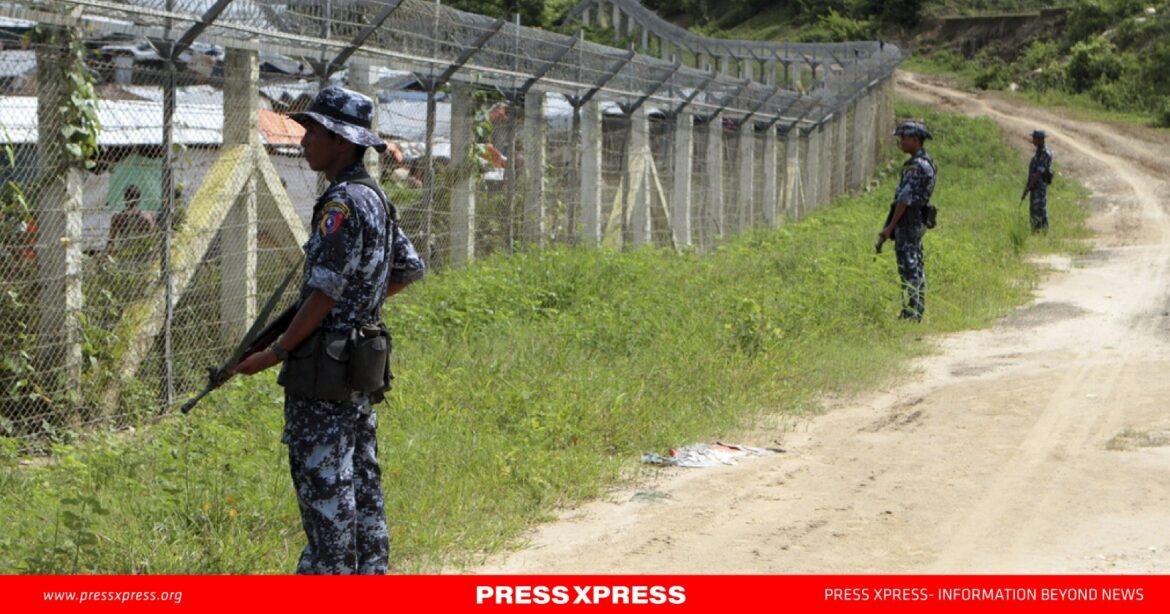The Arakan Army (AA), one of Myanmar’s most powerful ethnic armed groups, has claimed a significant victory in its struggle for autonomy, announcing the capture of the last military outpost in Maungdaw, a key border town with Bangladesh. This development solidifies the group’s control over the northern part of Rakhine state and the 271-kilometer border with Bangladesh, marking a major milestone in its quest for self-rule.
Strategic Gains Amid Civil War
The Arakan Army’s advancement underscores the evolving dynamics of Myanmar’s nationwide conflict, which has intensified since the military seized power in 2021, ousting the elected government of Aung San Suu Kyi. Rakhine state has emerged as a critical battleground, with pro-democracy guerrillas and ethnic armed forces, like the AA, challenging the military junta.
Khaing Thukha, the AA’s spokesperson, stated that the capture of the outpost on Sunday marked the culmination of months of sustained offensives in Maungdaw, approximately 400 kilometers southwest of Mandalay. Brig. Gen. Thurein Tun, the outpost commander, was reportedly apprehended while attempting to flee the battle. However, independent verification of these claims remains elusive due to disrupted internet and communication services in the area.
The AA’s momentum has been building throughout 2023. Earlier in the year, the group captured the border towns of Paletwa and Buthidaung and now holds control of 11 of Rakhine’s 17 townships, along with one township in neighboring Chin state.
A State on the Brink
The AA’s territorial gains extend beyond Maungdaw. The strategically significant town of Ann, which hosts the military’s western command headquarters, is reportedly on the verge of falling to the group. On Friday, the AA claimed via Telegram that it had captured over 30 military outposts, leaving only the western command and its adjacent facilities intact.
The implications of the AA’s territorial dominance are profound. Rakhine state’s proximity to the Bay of Bengal makes it geopolitically vital, particularly for controlling maritime access and regional trade. However, the AA’s rise also raises alarms over the region’s humanitarian situation, particularly for the Rohingya minority.
Humanitarian Concerns for the Rohingya
The Rohingya, a Muslim minority who have faced decades of persecution in Myanmar, remain vulnerable amid escalating violence. In 2017, a military crackdown in Rakhine drove more than 740,000 Rohingyas into neighboring Bangladesh, a crisis labeled as genocide by international observers.
Recent AA offensives have raised fears of renewed violence against the Rohingya. The group has been accused of significant human rights violations, including forcing an estimated 200,000 Rohingyas to flee Buthidaung in May and attacking civilians fleeing Maungdaw in August. Despite AA denials, eyewitness reports and accounts of arson and forced displacements suggest otherwise.
The AA’s decision to suspend transport across the Naf River—the natural border with Bangladesh—has also compounded the plight of those attempting to escape the violence. The group claims the move was aimed at preventing police and local Muslims affiliated with the military from fleeing to Bangladesh, but it has further isolated Rohingya communities in the conflict zones.
A Longstanding Struggle for Autonomy
The Arakan Army represents the military wing of the Rakhine ethnic group, which seeks greater autonomy from Myanmar’s central government. While Rakhine’s majority population aligns with the AA’s calls for self-rule, their relationship with the Rohingya remains fraught, rooted in historical prejudices and territorial disputes.
The AA’s territorial gains have also bolstered its position in Myanmar’s broader ethnic armed alliance, which launched offensives in the northeast last year, securing key positions along the Chinese border.
The Bigger Picture
Rakhine state’s significance extends beyond Myanmar’s internal power struggle. Its resources, strategic location, and access to the Bay of Bengal make it a focal point for geopolitical and economic interests. As the Arakan Army tightens its grip, Myanmar’s military faces a mounting challenge to maintain control over the region, raising questions about the future of the country’s civil war and the international community’s role in addressing the escalating crisis.
For now, the AA’s claim of full control over Maungdaw represents a critical juncture, highlighting both the opportunities for regional autonomy and the risks of worsening humanitarian conditions in an already volatile state.


